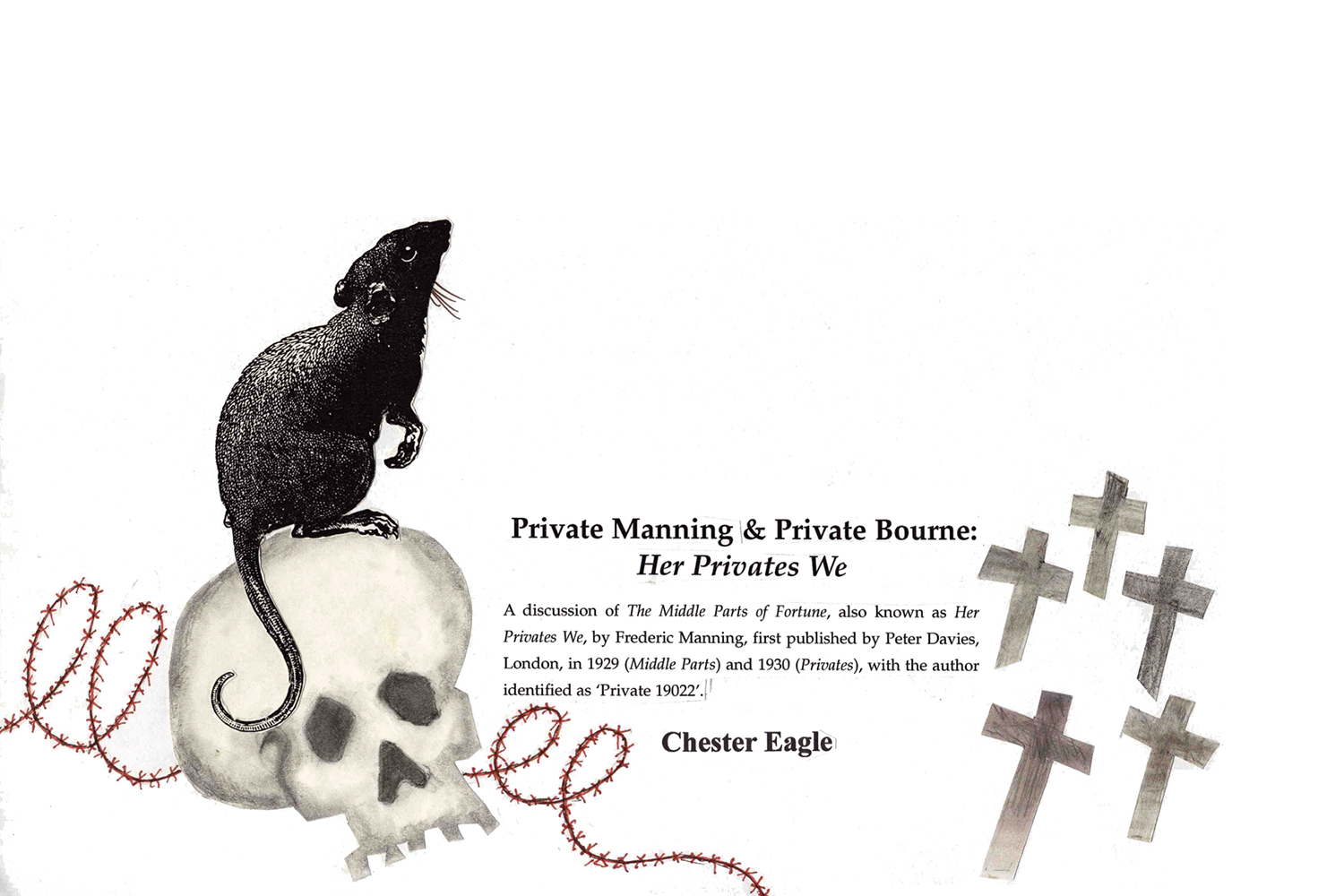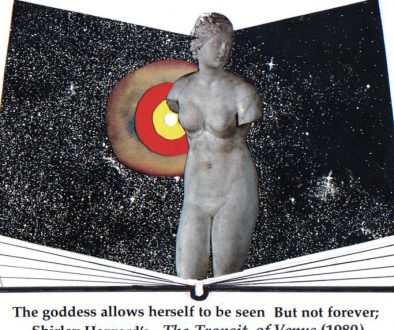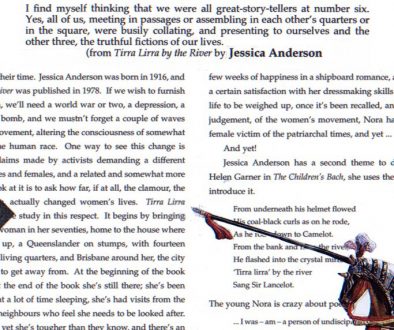6. Private Manning & Private Bourne: Her Privates We

6. Private Manning & Private Bourne: Her Privates We
A discussion of The Middle Parts of Fortune, also known as Her Privates We, by Frederic Manning, first published by Peter Davies, London, in 1929 (Middle Parts) and 1930 (Privates), with the author identified as ‘Private 19022’.
Private Manning & Private Bourne: Her Privates We:
It took Europe ten years to digest the experiences of World War 1 before it was ready to revisit them in literature. Many fine and famous books appeared in the years following 1929, and one of the finest is Frederic Manning’s The Middle Parts of Fortune, better known in its expurgated version, Her Privates We. Manning, as we shall see, was a most unlikely soldier, being a fastidious and reclusive scholar, but his knowledge of the writings, the thinking and traditions of European learning, gave him the basis for his treatment of that same civilisation at war. Many commentators have remarked upon the proximity of London, Berlin and Paris, the great centres of European life, to the battlefields of northern France. Men on leave could be at the theatre in London, for instance, one night, and back in the trenches, sloshing through mud and cowering under machine gun fire, a day or two later. People in the south of England could hear the artillery on the other side of The Channel (La Manche). Civilisation’s disgrace, its downfall, was obvious, because close, to all. For a brief period in 1916 Frederic Manning was at the heart of the conflict, fighting on the Somme and Ancre fronts in France; then he returned to London and managed to keep away from battlefields until his fellow-soldier Peter Davies persuaded him to put down what he’d experienced. Manning wrote, Davies took the pages to a typesetter, and brought them back for proofing. When the book was published a few people recognised the identity of the author but it was typical of Manning’s unwillingness to have attention drawn to himself that until 1943 his authorship was attributed to ‘Private 19022’.
Private 19022. Manning’s subject was a civilisation at war with itself, and his individuality was of little importance. [read more]
Introduction:
In 1981 Patrick White published an autobiographical book called Flaws in the Glass; the Melbourne Age commissioned two reviews, one of them from Hal Porter, who said, among many things unflattering to ‘Mr White’:
Writers of my sort can be said not so much to read as to examine another writer’s work rather as one car freak examines the vehicle and driving of another car freak. One says, “Splendid vehicle! Superb driving!” Or, “Nice vehicle! Ghastly driving!” Or, “Can’t stand that kind of cumbersomely pretentious vehicle! And what bewildering and erratic driving!”
Hal confesses that the third attitude is his to the novels and plays of ‘Mr White’. I will say no more at this point about Mr White or Mr Porter, but I quote this comparison of writer and car freak because in the essays that follow I am the freak who comments on others of his kind. I know I can’t see my essays as others will see them but I imagine some readers accusing me of many things, and others, well trained, perhaps, in one or another school of literary or social criticism, who will think my observations no more than shallow or ignorant. To such people I can only say that these essays offer whatever it is that a fellow-writer can offer, and don’t pretend to offer anything else.



